Meal Planner Weekly Printable
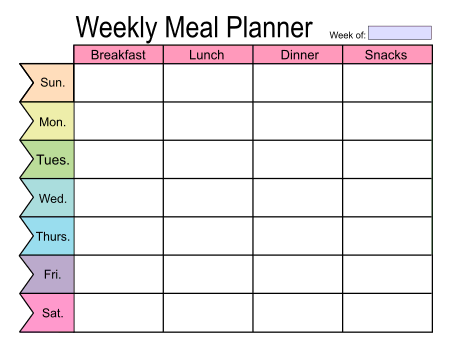
Introduction to Meal Planning
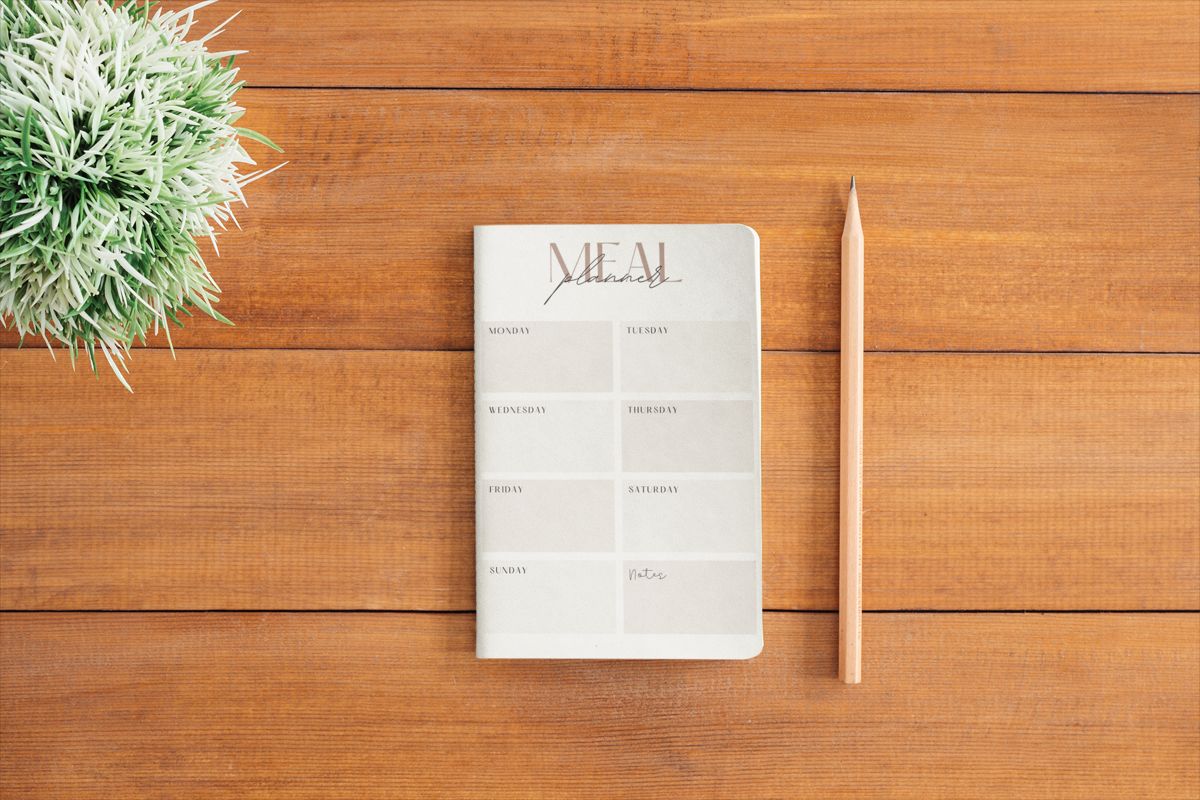
Meal planning is an essential part of a healthy lifestyle, allowing individuals to save time, reduce food waste, and improve their overall nutrition. With a well-structured meal plan, you can ensure that you and your family are eating balanced meals throughout the week. In this blog post, we will explore the benefits of meal planning, provide tips on how to create a meal plan, and offer a weekly printable meal planner to help you get started.
Benefits of Meal Planning

Meal planning offers numerous benefits, including: * Time savings: By planning your meals in advance, you can avoid last-minute trips to the grocery store and reduce the time spent deciding what to cook. * Cost savings: Meal planning helps you avoid food waste and stick to your budget by ensuring that you only buy the ingredients you need. * Improved nutrition: With a meal plan, you can ensure that you and your family are eating a balanced diet that includes a variety of fruits, vegetables, whole grains, and lean protein sources. * Reduced stress: Meal planning can help reduce stress and anxiety by providing a sense of structure and organization to your daily routine.
How to Create a Meal Plan
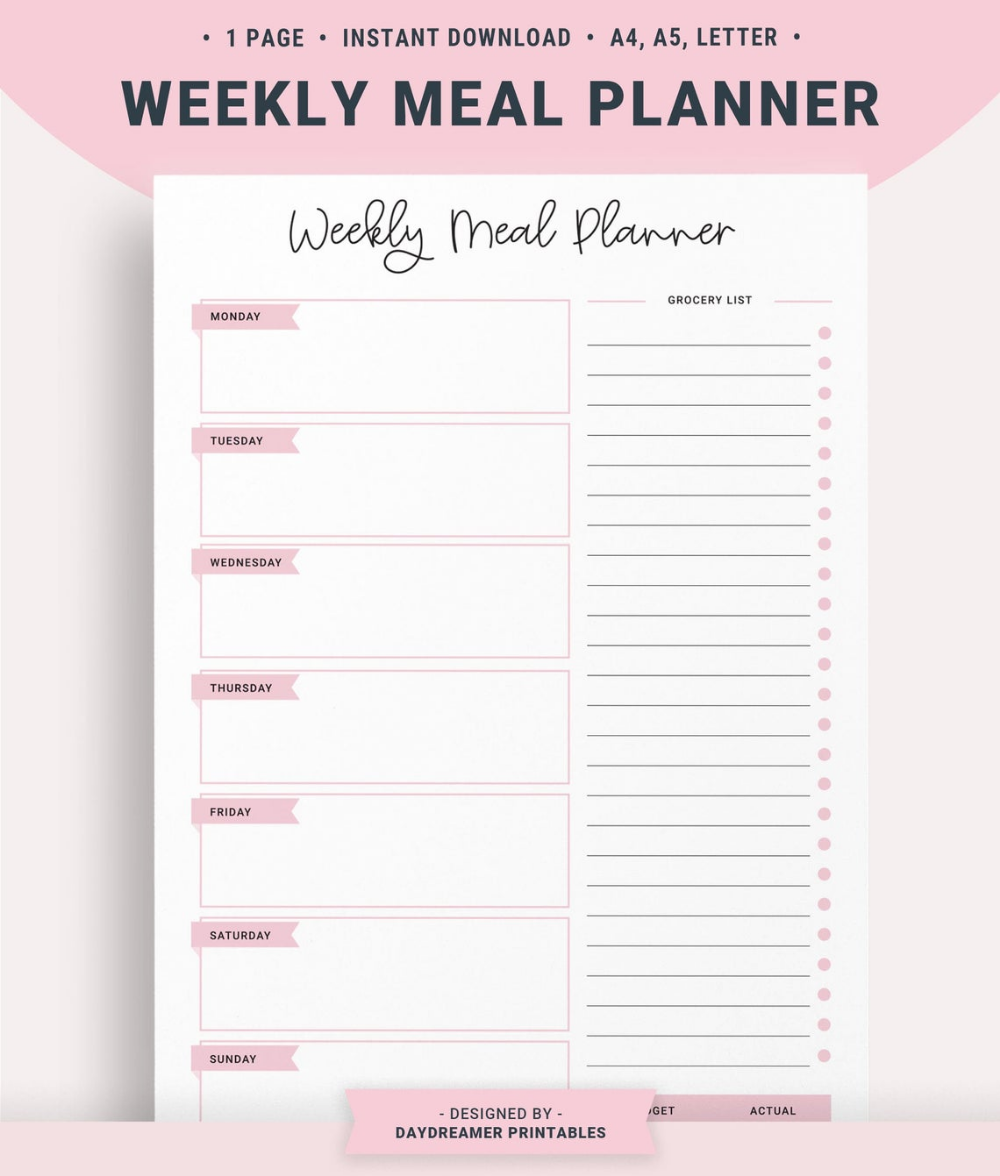
Creating a meal plan is a simple process that involves several steps: * Determine your dietary needs: Consider your lifestyle, dietary restrictions, and food preferences when planning your meals. * Plan your meals: Choose a variety of healthy meals that include a balance of protein, healthy fats, and complex carbohydrates. * Make a grocery list: Once you have planned your meals, make a list of the ingredients you need to buy. * Shop for groceries: Stick to your list and avoid impulse buys to help you stay on track.
Weekly Printable Meal Planner
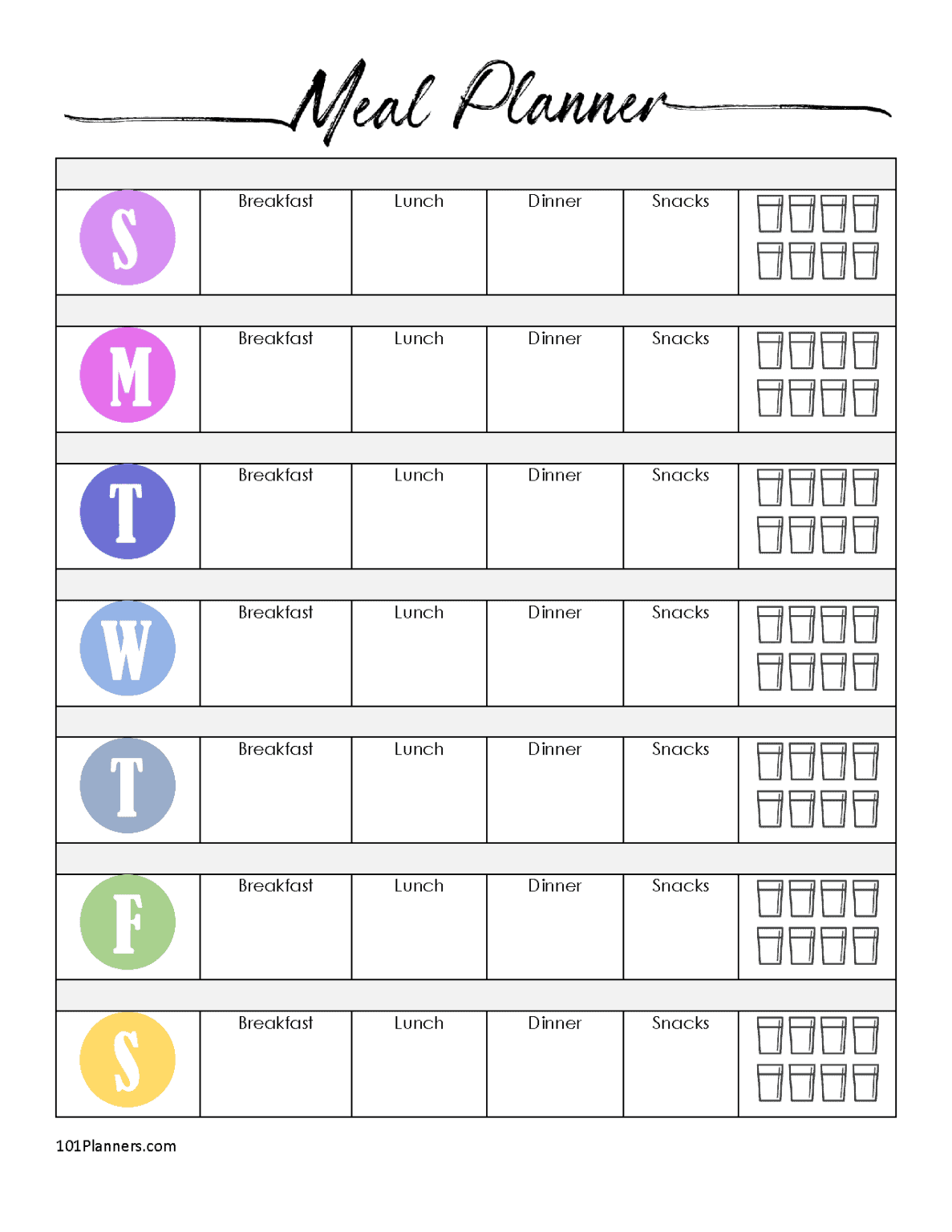
To help you get started with meal planning, we have created a weekly printable meal planner that you can use to plan your meals and make a grocery list. The planner includes space for: * Monday to Sunday: Plan your meals for each day of the week, including breakfast, lunch, dinner, and snacks. * Grocery list: Make a list of the ingredients you need to buy to prepare your meals. * Notes: Use this space to note any special dietary needs or food allergies.
| Day | Breakfast | Lunch | Dinner | Snacks |
|---|---|---|---|---|
| Monday | ||||
| Tuesday | ||||
| Wednesday | ||||
| Thursday | ||||
| Friday | ||||
| Saturday | ||||
| Sunday |
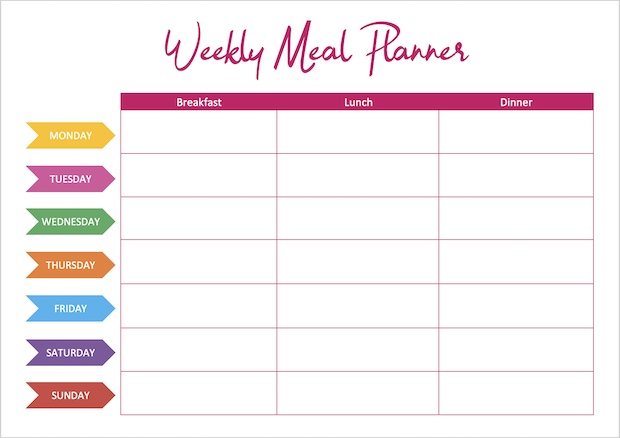
📝 Note: Remember to review and adjust your meal plan regularly to ensure that it continues to meet your dietary needs and preferences.
Tips for Successful Meal Planning
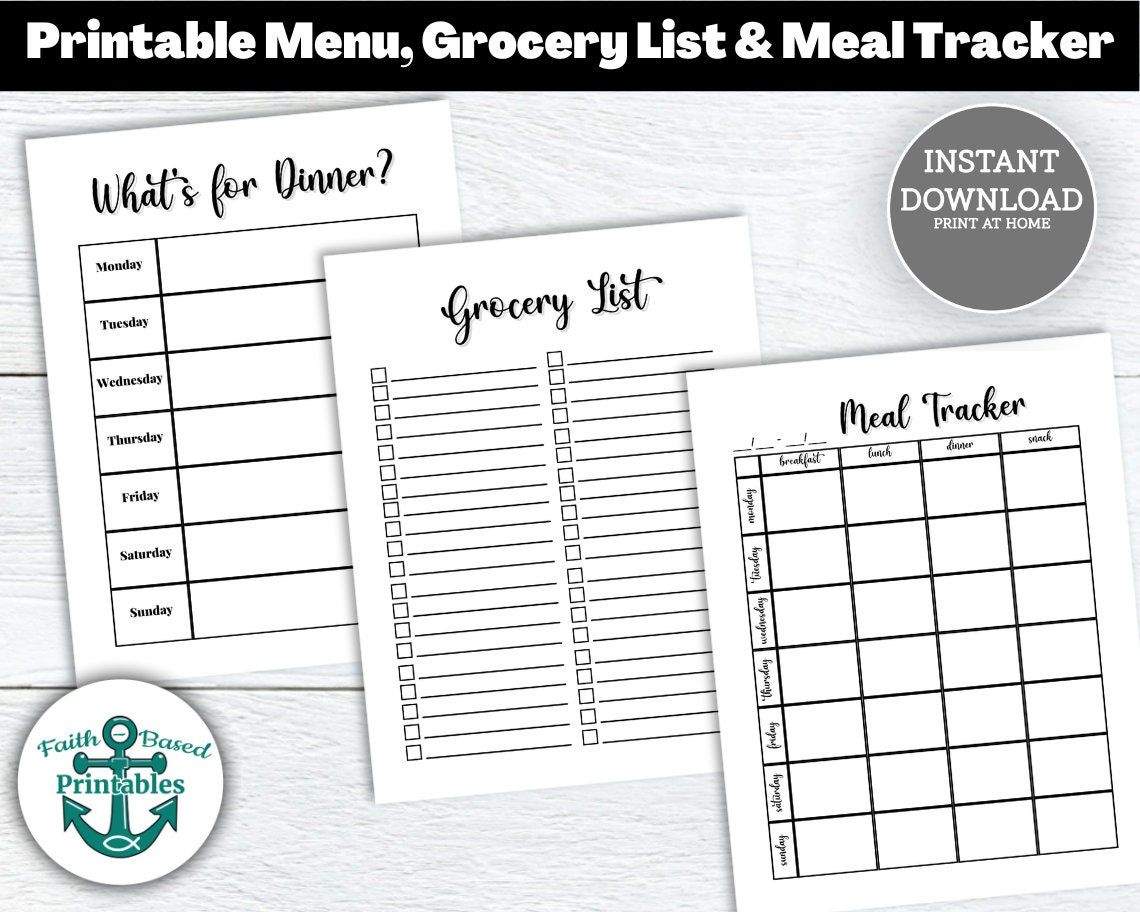
To ensure that your meal planning efforts are successful, consider the following tips: * Keep it simple: Don’t feel like you need to plan complex meals. Simple meals can be just as delicious and nutritious. * Be flexible: Life can be unpredictable, so be prepared to adjust your meal plan if needed. * Involve the family: Get your family members involved in the meal planning process to ensure that everyone is on board with the plan. * Use leftovers: Use leftovers to reduce food waste and save time during the week.
As we summarize the key points of this blog post, it’s clear that meal planning is an essential part of a healthy lifestyle. By creating a meal plan, you can save time, reduce food waste, and improve your overall nutrition. With the weekly printable meal planner provided, you can get started with meal planning today. Remember to review and adjust your meal plan regularly to ensure that it continues to meet your dietary needs and preferences.
What is meal planning?

+
Meal planning is the process of planning and organizing your meals for the week, including breakfast, lunch, dinner, and snacks.
Why is meal planning important?

+
Meal planning is important because it helps you save time, reduce food waste, and improve your overall nutrition.
How do I get started with meal planning?
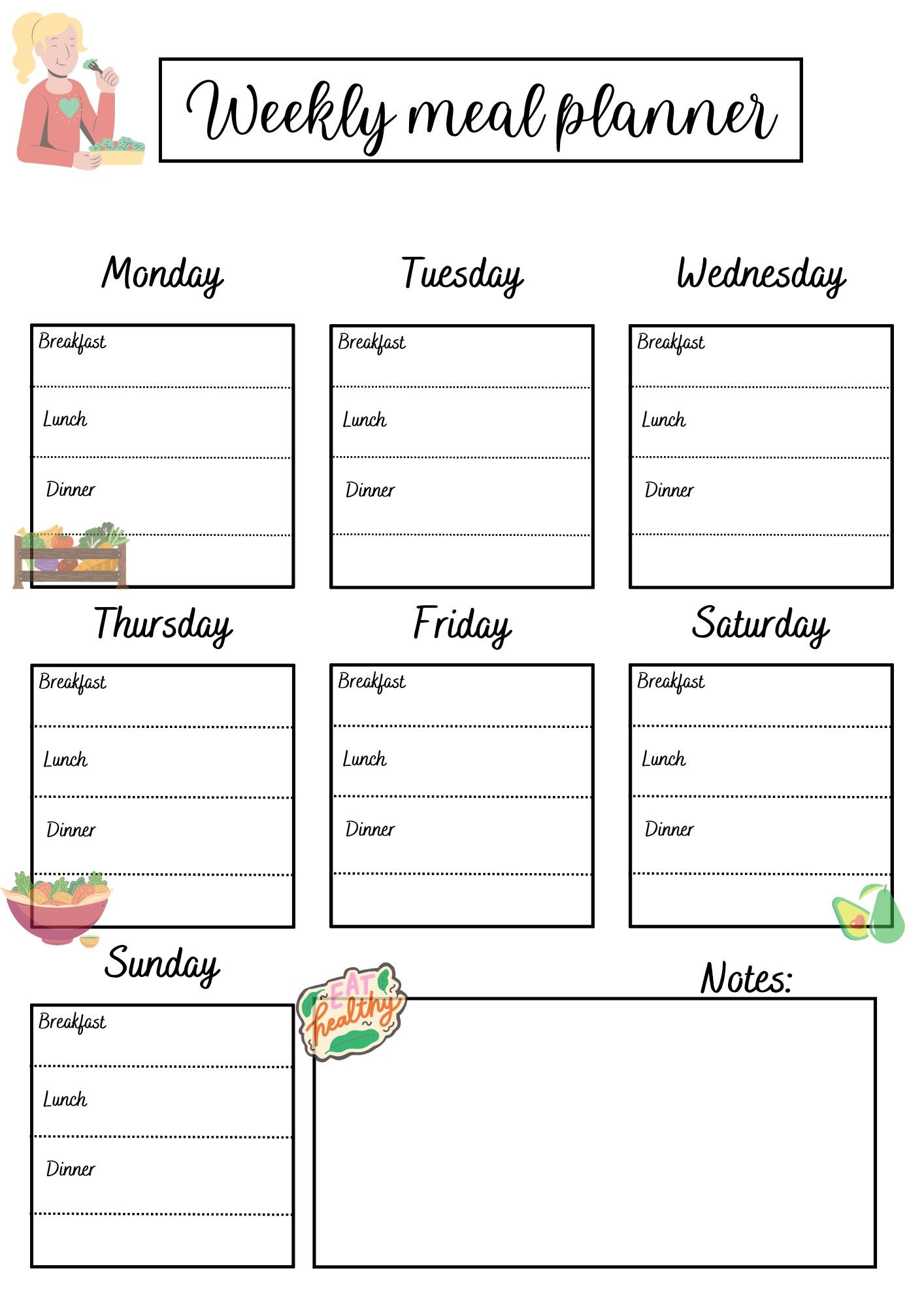
+
To get started with meal planning, determine your dietary needs, plan your meals, make a grocery list, and shop for groceries.


